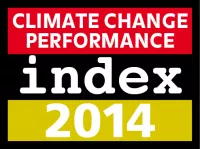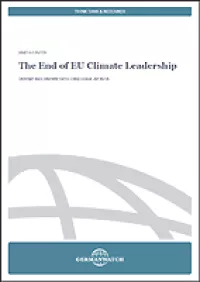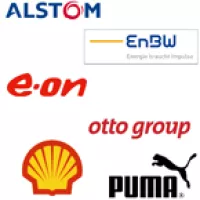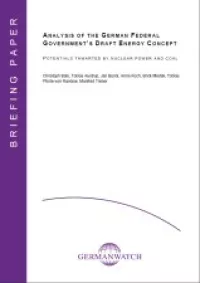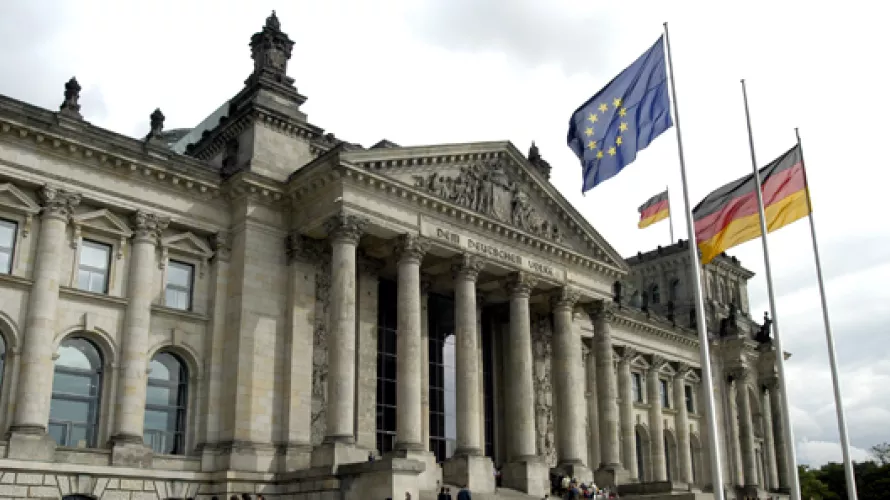
Aktuelles zum Thema
News
One week prior to the European Council of 20/21 March 22 civil society organizations of 9 Middle East and North Africa (MENA) countries urge the EU heads of government to regain the EU’s former climate leadership by backing progressive 2030 climate and energy targets.
Press Release
Canada and Australia are the worst performers of all industrialised countries
The new edition of the Climate Change Performance Index (CCPI) was released by Germanwatch and CAN Europe in Warsaw at the UN climate talks today. The results show emissions worldwide have climbed to a new peak and no single country is yet on track to prevent dangerous climate change. "Unexpectedly, for the first time our Index also draws a cautious picture of hope", says Jan Burck, the author of the Index that ranks the climate protection performance of the 58 highest emitters worldwide. "We see positive signals towards a slow down in the increase in global CO2 emissions. And China - the world's biggest emitter - improved its performance in climate protection."
Publication
The EU is no longer the world leader on climate policies. Other major countries have caught up or even outpaced the EU, a new study conducted by Germanwatch says. Even the U.S. and China now show at least as much headway in their climate change policies as the EU. This situation is highly problematic, as in the past EU climate action did encourage both OECD and Non-OECD countries around the world to take on more ambitious action.
Publication
Results of recent surveys concerning the impact of the EU emissions trading system on companies
This compilation of survey results shows how much companies involved in the EU emissions trading system (EU ETS) expect the EU to reform the ailing carbon market – by implementing the backloading proposal of the European Commission as a first step. Respondents are confident that the EU will adopt a 30% emissions reduction target for 2020 as a corner stone of further ETS reform.
News
Declaration by Alstom Deutschland AG, Deutsche Shell Holding GmbH, EnBW AG, E.ON SE, Otto GmbH & Co KG, Puma SE in cooperation with Germanwatch e.V.
Today, Germanwatch and six big German and European companies published a declaration in which they call on the German government to support the quick and long-term fix of the EU Emissions Trading System (ETS). The declaration, signed by Alstom, EnBW, E.ON, Otto, Puma, Shell, and Germanwatch, demands to enhance security for low-carbon investments done and planned. Low prices for CO2 are like posion for them. They therefore urge the German government to act.
Weitblick
we are living through some interesting, decisive and formative times. We are calling for change – a Great Transformation. On a small scale, civil society and various stakeholders are already mobilising, sometimes quietly, sometimes more vocally. Alliances and partnerships are forming, adopting highly diverse approaches and networking on a national or international scale...
Press Release
Germanwatch presents Global Climate Risk Index at UN climate conference in Durban
While the UN climate summit at Durban has started under the impression of severe local thunderstorms, the climate and development organization Germanwatch publishes its Global Climate Risk Index (CRI) for the seventh time. The index focuses on countries especially affected by weather extremes such as floodings and storms in 2010 and during the past twenty years. The Global Climate Risk Index is based on data collected in the worldwide renowned database at MunichRe.
Publication
Potentials thwarted by nuclear power and coal
September 2010, the German government presented the draft of its energy concept. It is marked by striking contradictions. In view of the large energy utilities’ financially strengthened role and the shift of competition rules into their direction, it is doubtful whether the concept can be successful.


